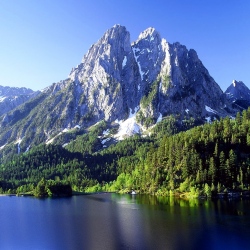
The study found that while international media coverage led to spikes in public interest, the number of related search terms fell back to earlier levels after just a matter of days Researchers also looked for search terms indicating climate change scepticism and found no long-term change following the two news events.
Relative search volumes for a number of terms, including ‘global warming hoax’ and ‘climategate’, were compared between 15 November 2009 and 15 March 2010. During this period, the two climate science stories had received intense media coverage across the globe.
First, in November 2009, emails were hacked from the accounts of climate scientists from the University of East Anglia and used to accuse the scientists of misconduct, dubbed by the media as ‘climategate’. The scientists were cleared following numerous inquiries by independent commissions. Then shortly after ‘climategate’, in January 2010, the news broke about an error in the rate of the Himalayan ice melt in the IPCC report.
The researchers found that the use of the search term ‘climategate’ halved six days after a peak in the public interest around the story of the email hacking incident at the University of East Anglia. There was no evidence for an increase in the number of searches for ‘global warming hoax’, a search term that was associated with climate change scepticism, following the email hacking incident.
Even when the number of searches for ‘Himalayan glaciers’ had reached its peak during the discovery of the error, the researchers found no clear increase in relative search volume for ‘global warming hoax’.
